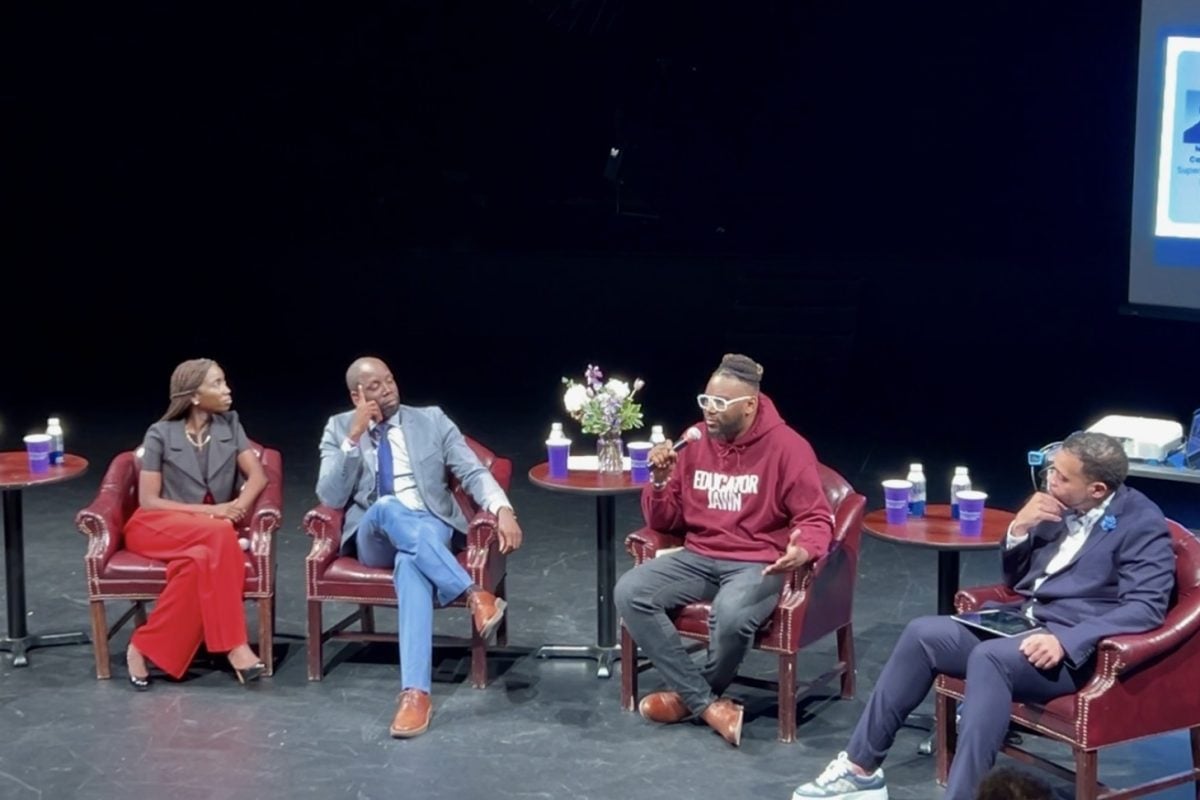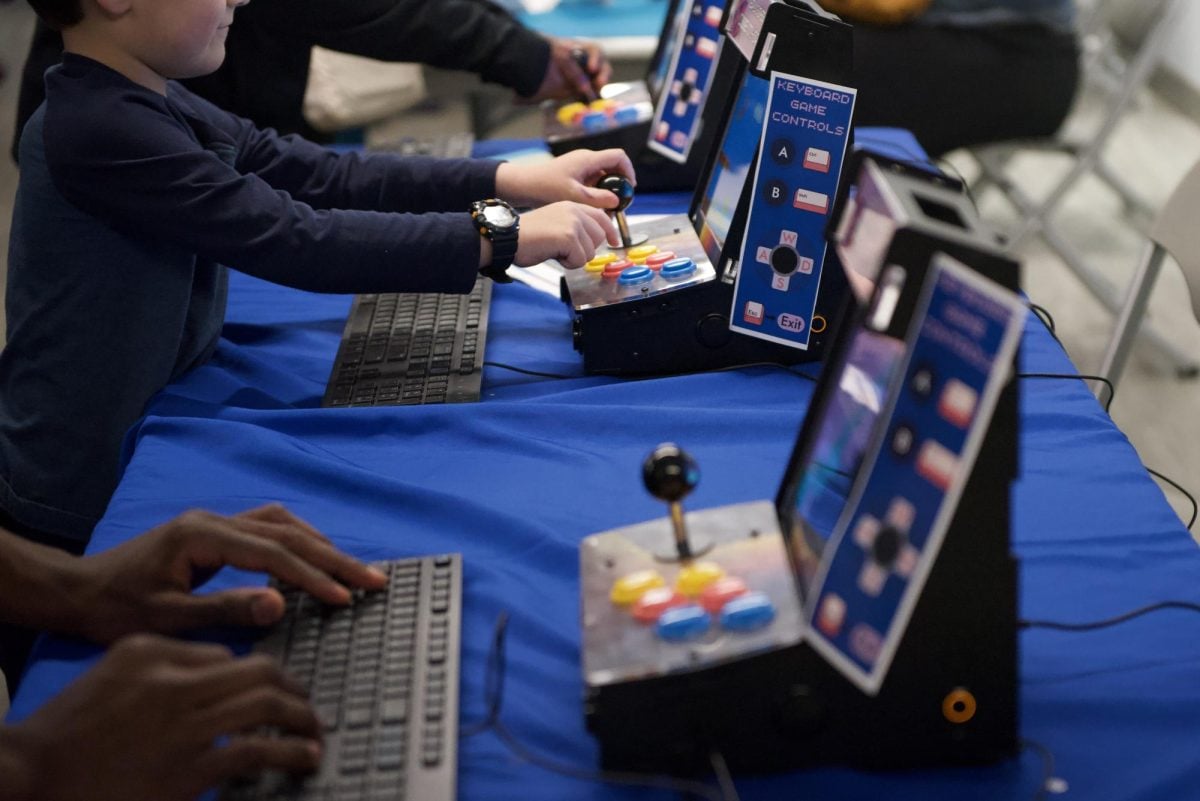Evanston Township High School Superintendent Marcus Campbell called the community he grew up in on the south side of Chicago “hyper-segregated.”
He said he grew up going to predominantly Black schools that “normalized” Black achievement.
When he started teaching regular and advanced English classes at ETHS, Campbell said his goal was to have both tracks learn the same content. He said he knew the students in his regular-level courses, whom he observed were often Black and brown, would be able to understand more complex literature like “The Odyssey” if they were taught it in a way that made sense to them.
“I never doubted that they could (understand it),” he said. “You know why? Because my teachers never doubted me.”
Campbell shared his story at a panel called “Have We Really Moved from Separate to Equal: Brown through the Lens of Education Practice” held at ETHS on Thursday. The panel is part of a two-day workshop titled “Brown v. Board of Education at 70: An Evolving Legacy,” sponsored by Northwestern’s School of Education and Social Policy and the Pritzker School of Law.
Moderated by SESP Prof. Paula Hooper, panelists talked about their experiences as students and educators and the past, present and potential future impacts of the landmark education Supreme Court case Brown v. Board of Education, which ordered schools to be desegregated.
Panelist and Harry S Truman College President Shawn Jackson said it’s important for educators to support the next generation of marginalized people — in and out of the classroom — so they pass their confidence and knowledge to their communities.
“This is really about empowering the community for the community,” he said.
SESP Prof. Sally Nuamah said one of the biggest responses to the Brown v. Board decision was closing schools instead of integrating them. She said this is what happened in Little Rock, Arkansas, where in the “lost year,” the 1958-1959 school year, 50% of Black children did not get formal education.
At ETHS, Black and brown students’ experiences varied over the school’s 141 year existence, Campbell said.
For K-12 education in Evanston overall, he said the 5th Ward’s Foster School closing has had a “devastating” effect on the city.
“I am hopeful that the new school will begin to address some of the challenges with Black achievement in this community for the last 60 years,” Campbell said.
Panelist Corey Winchester (SESP ’10, ’20), who is an ETHS educator and fourth-year SESP Ph.D. candidate, emphasized the importance of having dialogue and creating room for everyone’s stories in the education space.
For students at ETHS, Campbell said one area in which dialogue is emphasized is when a student is being disciplined. He said students and administrators have to build their relationships in ways that allow more holistic conversation about a situation.
Campbell added that ETHS staff try to make education more “humanizing” but have to balance these efforts with “tensions” created by state expectations for standardized testing and other requirements.
Despite this, he said students are vocal about what they care about, which is also important.
Nuamah said this kind of speech is important for students and families. She said it should be fostered, especially when issues such as school closures arise, to make the community feel included and seen.
“One of the easiest things that district leaders can do is to treat people like they know what they can do for their communities and for their children,” Nuamah said.
Email: anaviprakash2027@u.northwestern.edu
X: @anavi_52
Related Stories:
— D202 board hears sustainability update
— D65 gives design sneak peek for 5th Ward school at open house
— Sherman United Methodist Church hosts ‘My Black is Beautiful’ series



















